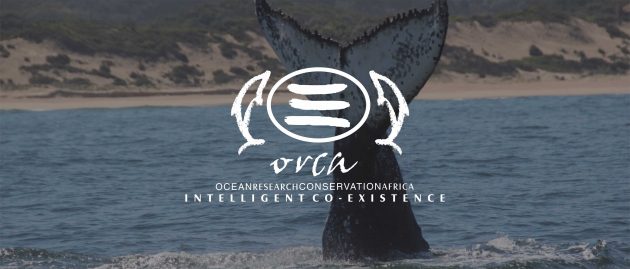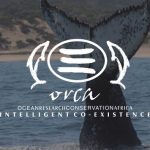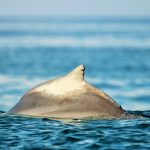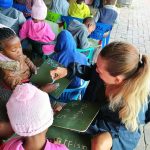| ORCA FOUNDATION – VOLUNTEER PROGRAMME – 2019 |
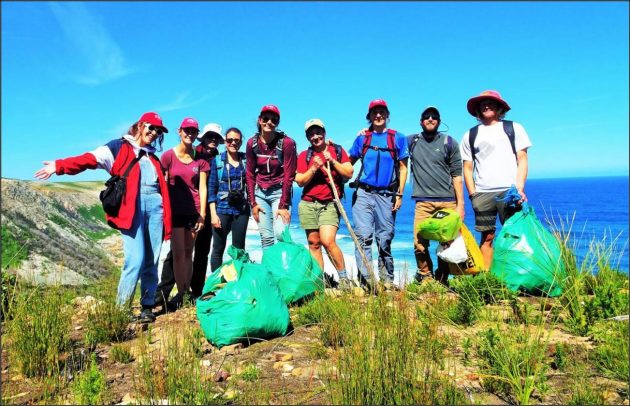
PROGRAMME OVERVIEW
The ORCA Foundation, a conservation node of Ocean Blue Adventures, officially opened its doors in 2001 and was designed to create awareness about marine conservation issues facing Plettenberg Bay. Today, the foundation combines research, conservation and education into its comprehensive volunteer programme.
The foundation strongly depends on the willingness of international volunteers to contribute their time and dedication to help further our work. Volunteers of different ages and backgrounds come from all over the world to learn and provide valuable assistance in a wide variety of meaningful projects. This allows them to make a valuable contribution to increased knowledge and awareness regarding local conservation efforts.
How will I help?
It’s all hands-on! You will play a major role in our programme where you will be expected to perform a large portion of the work.
Your participation in conservation and education projects will involve regular hikes and surveys on local beaches to perform marine debris clean-ups; alien plant eradication; river health assessments; assistance at the SANCCOB Seabird Rehabilitation Centre; assistance at the Knysna Animal Welfare Service (KAWS); and environmental education of children at the Siyakula Pre-School Crèche and Sterreweg Special Needs Pre-School.
We support applied research by partnering with resident marine scientists based in Plettenberg Bay. Their projects are perfect for individuals who are interested in marine mammal research. By assisting them in the field you will gain valuable experience in boat-based and land-based field research methods involving some of Plettenberg Bay’s charismatic marine top predator species (eg. southern right whale, humpback whale, Bryde’s whale, Indian Ocean humpback dolphin, common dolphin, bottlenose dolphin, Cape fur seal and Great white shark). You will assist with humpback dolphin photo-ID research and record sightings of other marine animals during dedicated boat-based surveys. In addition, you will join Ocean Blue Adventures commercial whale and dolphin watching boat trips when there are opportunities to record opportunistic data. You will also participate in other research projects including marine mammal stranding response and necropsy; seal population monitoring; seal scat processing and preliminary identification of prey remains; seal-fisheries interaction and seal-shark interaction research in the Robberg Marine Protected Area. Sample processing, data entry and error checking forms an important component of research, and you will be expected to perform a large portion of this work.
THINGS TO BE AWARE OF
The level and extent of your participation
Depending on the length of your stay, you may or may not participate in the full range of activities. If your stay exceeds 2 weeks and you have achieved a level of experience that is satisfactory to our team, you may be asked to take on more responsibility in certain projects and even train or supervise new volunteers.
You will be exposed to challenging work conditions
While assisting biologists during boat-based fieldwork you may be required to move around the vessel whilst underway, sometimes in choppy conditions. Seasickness is a possibility and we suggest you take the necessary precautions if you think you may be prone to this condition. Hiking out to work sites, clearing alien plants or performing tedious behavioural observations from cliff-top vantage points can be physically demanding and mentally challenging. However, we do realize that every volunteer has their own physical and mental capabilities, and therefore won’t expect you to venture beyond your limits. It is important to notify the volunteer coordinator at the start of your stay if you have any disability, injury or condition (especially fear of heights) that may affect your participation in some of our more challenging fieldwork activities.
You will need to be patient with the weather-dependent nature of fieldwork
You will need to be prepared for regular last-minute changes in the pre-planned work schedule. It is important to understand that most of the projects are highly weather dependent, especially boat-based fieldwork. Bad weather days will be used to catch up on data entry and other database tasks. Opportunistic research on Ocean Blue Adventures whale and dolphin watching boat trips may also be cancelled or delayed depending on available space and last-minute tourist bookings. Marine mammal strandings often occur without warning. Events involving fresh carcasses or live animals ashore require immediate response and therefore take priority over all other activities. When we receive a report of a marine mammal ashore we often drop what we are doing and rush out to investigate as data and samples collected from stranded animals are very valuable for research.
ORIENTATION AND TRAINING
No previous experience is required to participate in our programme. It is however recommended that you have the following qualities in order to make a valuable contribution:
- General interest in marine biology, research, conservation and education
- Enthusiastic, positive, mature and independent attitude
- Willingness to learn and work well within our small team
- Adaptable and patient due to the weather dependent nature of fieldwork
- Ability to work long-hours on small vessels
- Moderate fitness level to hike long distances in the field
- Attention to detail
- Willingness to perform tedious behavioural observations
- Willingness to perform tedious data entry duties
- Ability to communicate fluently in English (both written and oral)
Once you have arrived and settled into the ORCA house, our volunteer coordinator will give you a brief orientation of the programme. Details of the purpose and importance of each project can be found in this guidebook but will also be explained further during in-field training.
There are two additional training opportunities for those that wish to expand their skills in the marine tourism sector:
- Marine guiding course: We are happy to assist you with your registration on the South African Boat-Based Whale-Watching Association (SABBWWA) course, which will provide you with a local marine guide qualification.
- SCUBA diving course: PADI accredited courses can be organised for volunteers at an additional fee through the local dive school.
Please ensure that you inform the volunteer coordinator as soon as possible if you are interested in completing either of these courses.
If you would like to continue to read more about our project, click here.
